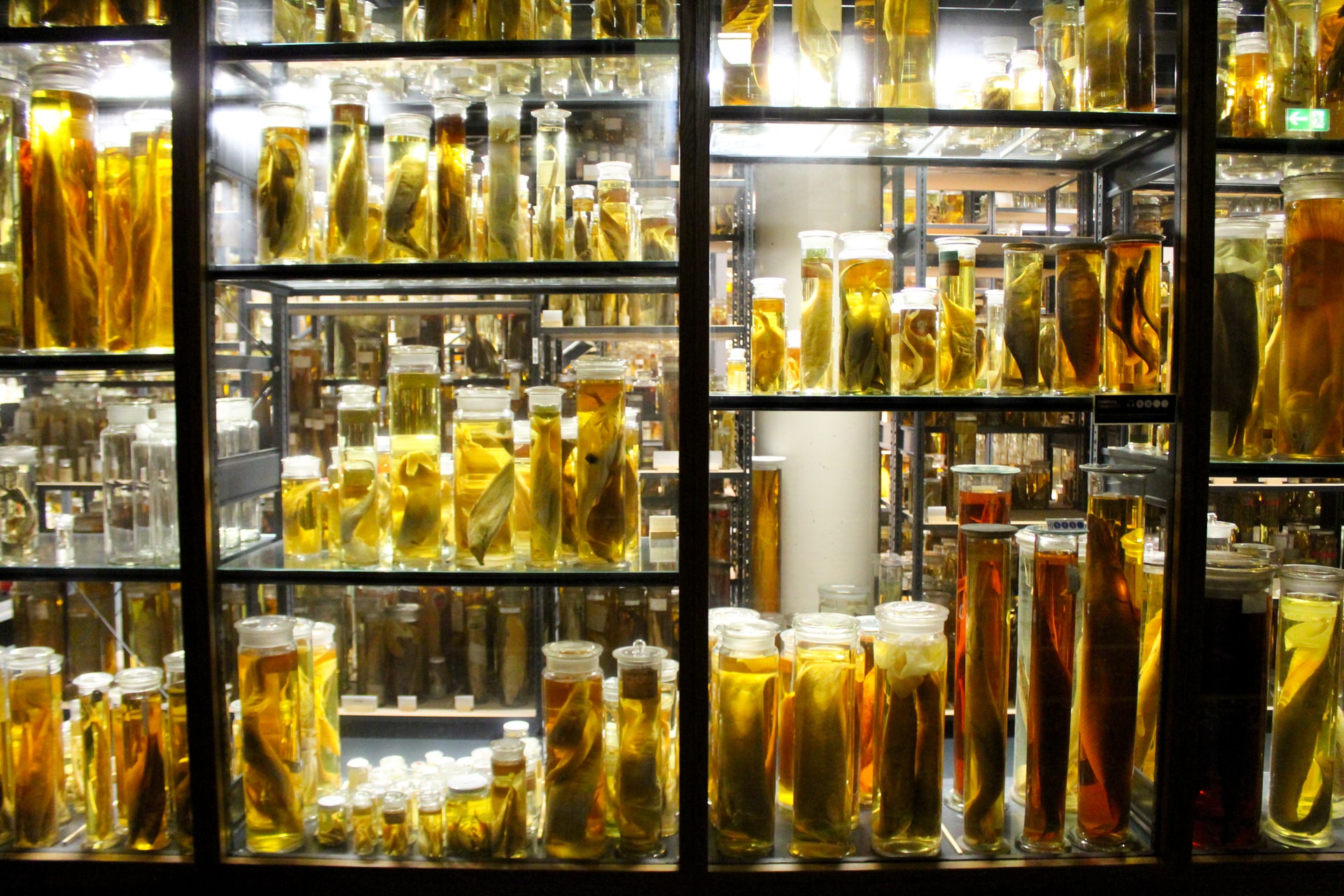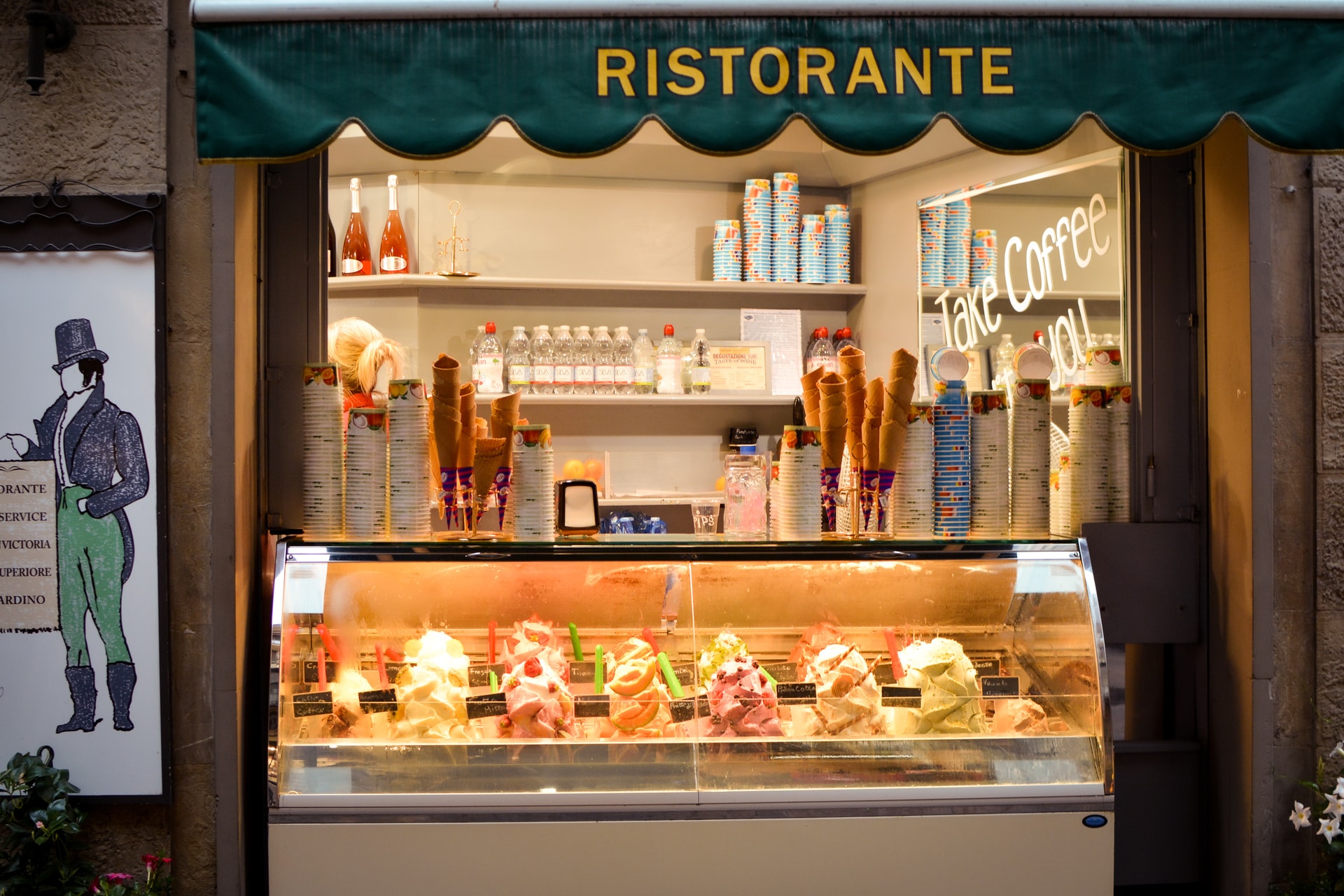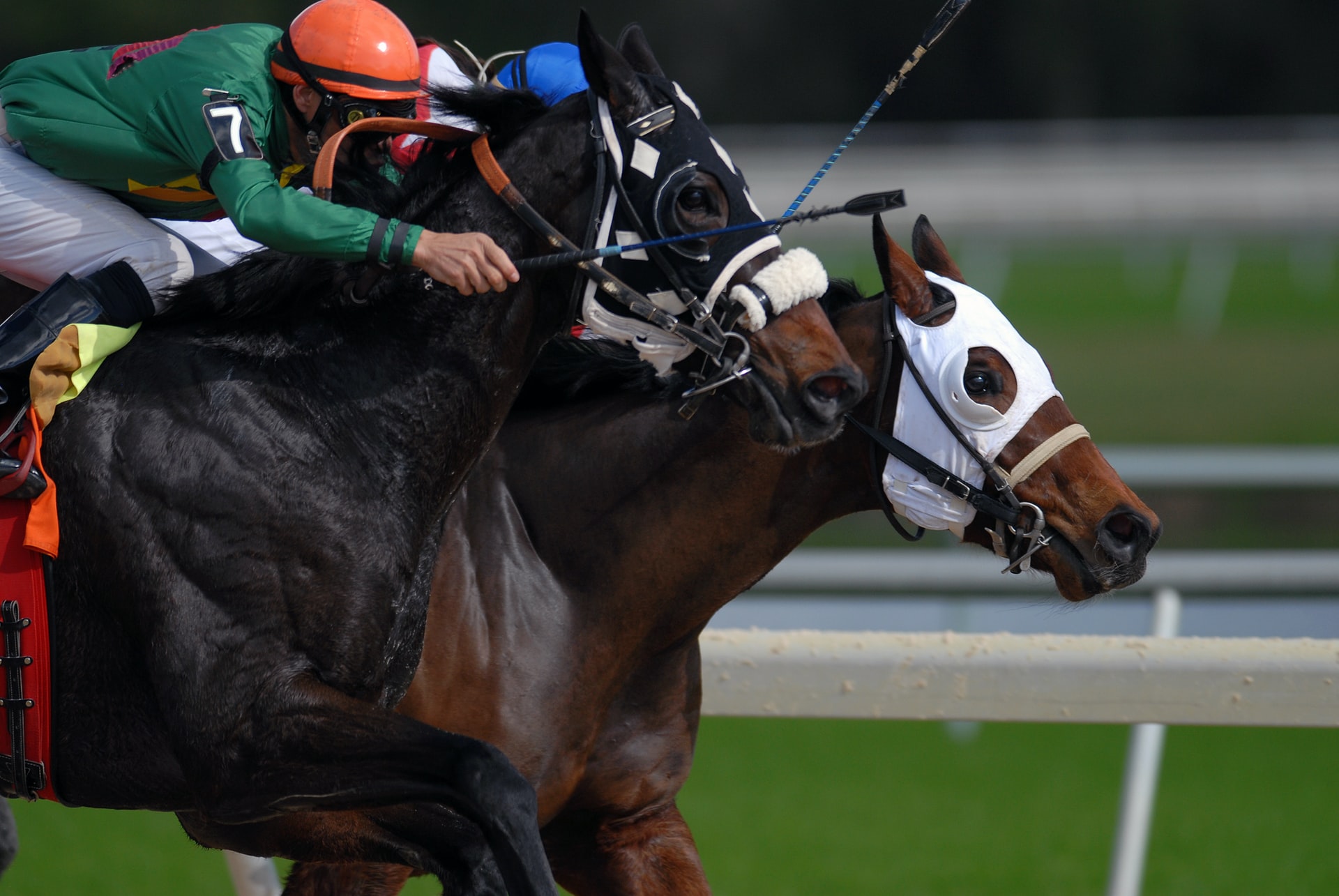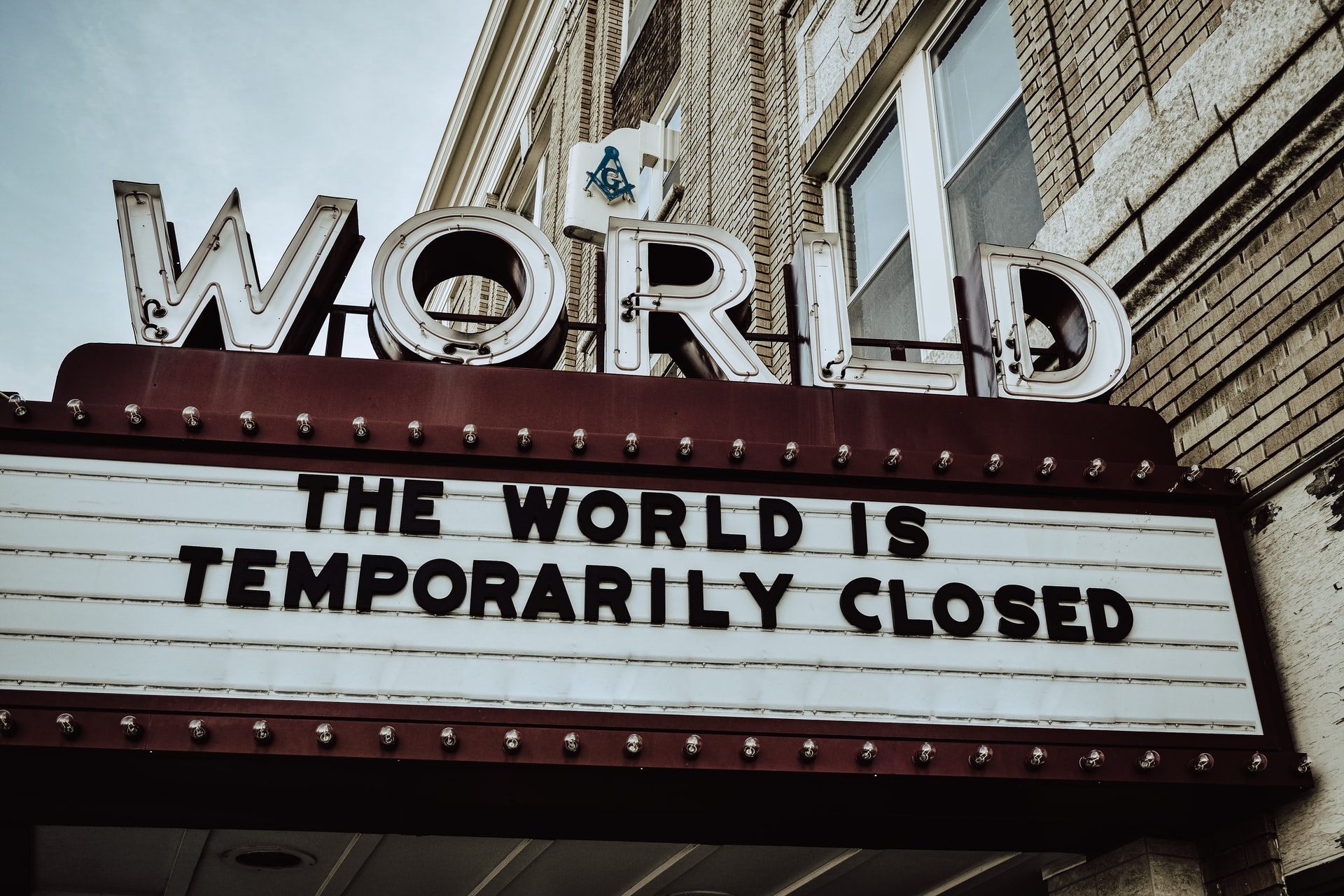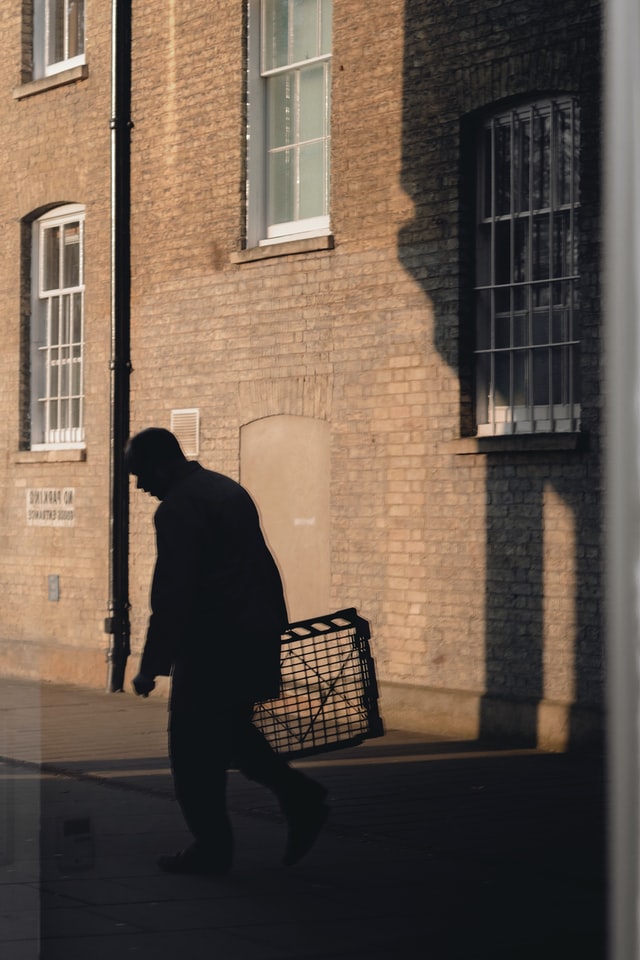He ushered me in from the cold and I made sure to stomp the snow from the soles of my shoes on the entry rug. The lobby was dim due to the maroon carpeting and the oak wall paneling fixed with only two sconces. Our voices seemed muffled as we exchanged words about my travels and the beautiful state of the museum. He shook my hand warmly, clasping it in his leather gloved hands before taking my coat and bag from my shoulders in a welcoming gesture and offered me a beverage.
“No, thank you, Mr. Wallace,” I declined, eager to begin my tour.
“Please, just call me Wallace,” he said with a jovial laugh, and I smiled as well, remembering that his full name was Wallace M. Wallace.
My host stopped me by the register to sign my name in the guest book, commenting on my penmanship. He never let the conversation falter, filling every pause before it could turn awkward. He was quite good at entertaining, practice from the long years he spent running his museum. It was open every day of the year except one—a date that didn’t align with any holiday or observation that I knew. Despite being located high in the remote mountains of Askalla, he told me that the museum saw a steady stream of visitors year-round.
“Even in the winter months—like yourself!” my host said and as he let out another of his barking laughs, his teeth flashed white and sharp.
I was the only visitor that day. And despite having year-round visitors, the museum’s reputation was shrouded in mystery. No matter who I talked to, I couldn’t get an exact response of what the museum actually held. The topic was often skirted when I brought it up and I soon found it hard to tell what was fact and what were flying rumors.
He launched into the history of the museum: how his great grandfather built it by hand originally as his mansion before filling it up with oddities from his world travels.
I was surprised that even after traveling to nearly every forgotten corner of the world; deep into jungles on foot, high into platous in a hot air balloon, even the bottom of the ocean in a submarine, he had built his mansion here, where the nearest town wasn’t for hundreds of miles, the sky was always dark, and the air thin and frigid.
I noticed that as he talked he’d lick his lips every few words, like a snake’s flickering tongue. I was transfixed and missed much of his speech until he said “The museum awaits us!” and turned to lead me through an archway, pushing aside the heavy curtain that obscured what lay beyond.
If the lobby was dim, the first exhibition room was positively dark. I squeezed my eyes shut several times hoping to induce better sight but I resorted to squinting and instinctively moving toward the only source of light. A giant tank in the middle of the room emitting a green glow.
“He’s estimated to be 213 years old,” Wallace said proudly. At first I couldn’t find the creature in the tank, my eyes searched the murky water. Then, once I realized that what I was staring at was in fact the creature, it took me another moment to understand what I was looking at.
It was a turtle, or turtlesque. The massive thing had the pointed face and an arched shell of a snapper and was covered in mossy algae that seemed not to be growing on but rather growing from the creature. The specimen’s eyes were clearly gone, replaced with mushy white sockets.
“We start our tour with the aspidochelone[1] because it was the first of my great grandfather’s live specimens to the museum. Taken from a river deep in the Gyte Jungle[2]. ”
The turtle creature was definitely alive but watching it float lethargically in the tank, it could be easily mistaken for a piece of decaying kelp.
“I didn’t think these were real,” I said, peering closer. However, the creature didn’t hold my host’s attention long, he had much more left to show. He was just getting started.
I saw more reptiles and fish in tanks, including a yellowing Gharial[3], in the next room. It was mighty and aggressive, and lashed out at me with the temperament of a crocodile even though it’s slender snout made it look almost comical. Even with the thick glass separating us, I still recoiled back in fright, barely keeping a cry from escaping my throat.
The next tank held two identical purple snakes. And when I say identical I mean not only was every spot on every scale the exact same as on the other, but their movements were perfectly synchronized, despite being two entirely separate creatures. It was as if they shared the same brain. They slid across the sparkling gems that made up the floor of their enclosure. I wondered if the gems were real or simply imitation glass cuts. A silent nod from my host told me he had guessed what I had been thinking.
The twin snakes were nowhere near as disturbing as the exhibit directly to the right, which held a mammoth snake slowly squeezing the life from what looked to be an elk. The beast had stopped thrashing but still wasn’t quite dead. It’s eyes bulged and bled. It was such a slow and grizzly procedure I quickly turned away.
Snakes with six eyes, a toad the size of a frying pan, centipedes thick as my fist.
“Who takes care of all of these? It can’t just be you here?” I ask, examining what looked like a spider with wings.
“Myself and a small but trusted team work round the clock, caring for artifacts, both dead and alive.”
“Dead?”
“Even our unliving displays need special care.”
“Do tell,” my voice revealed my dark intrigue. But Wallace only motioned for me to follow him deeper into the museum. I had no choice but to follow—with the feeling of the eyes of every reptile and creepy crawler on me.
Faint music could be heard drifting through the walls and corridors. The source was an auditorium where mechanical musical instruments were playing themselves in a ghostly orchestra.
I was led down a hallway covered in paintings and masks. We moved quickly and I only saw a few at a glance. A pair of portraits of two blond haired boys, both weeping. Masks with grimaces, merth, and sneers. Their eye sockets black and agape.
We emerged into a large room with tall windows that would have let in significant light if it hadn’t been dark outside. Black skeletons of ancient creatures, or what I assumed were ancient as they were unlike any animals I was familiar with, towered over taxidermied animals. The bones of an enormous whale hung suspended from the ceiling. The exhibit was laid out in two rows down the center of the long room in an organized fashion of skeletons and display cases. Skulls, horns, hooves, teeth and tusks. Mollusks, mushrooms, shells, geodes, and fossils. Specimens pickled in jars and specimens laid out in preserved dissection. A dead zoo.
Off to the left was a bookcase that encompassed a wood door with glass paneling. Wallace opened the door and motioned for me to enter first. I could tell the room was climate controlled because we were met with a cool breath of air and white vapor. I felt certain that the books which lined every inch of the walls on shelves were some of the oldest I’d ever laid eyes on. I tried to catch a few titles but many were written in foreign tongues or only had symbols to distinguish them. These books didn’t hold my attention, as the table at the back of the narrow library was obviously the main attraction. Two heavy leather bound books lay open on stands, side by side.
“These two are some of the very few anthropodermic bibliopegy books in the world[4]. My grandfather acquired the bigger one and I myself the second one about ten years ago. They are quite fragile, which is why I monitor this room’s temperature and humidity. But if you’d like to hold one, I would allow it.”
“What is anthropodermic bibliopegy?” I asked, striding over to take a closer look.
“The practice of binding books in human flesh.”
My hands stopped short of their destination. I was close enough to see the books in detail. The leather looked normal but I had no reason to disbelieve. I left the two books on their stands. My host just gave a chuckle.
“What are they about?” I asked. I couldn’t imagine what would possess someone to bind a book in such a way, but then what in the world would you write in it?
“Instructions on how to bind books in flesh!” and I had to laugh at this because the idea was so ironic and maybe because the whole thing was so gruesome that laughing about it was the only thing you could do to shug off the shudders.
My tour had only just begun. The more oddities I saw, the more my head reeled: cases of bugs with pins through them, a collection of eggs of various sizes, colors, and patterns, jars of organs, eyes, genitalia, and other preserved human anatomy. Bizarre statues and art, often dipicting scenes of violence, religion, sex, or all three. There was a hat made of barbed wire, rosaries covered in what appeared to be dried blood, a rustic rocking chair which Wallace informed me was called “The Devil’s Rocking Chair” and was reputed to be cursed. Amulets, knives, devices of torture and devices of pleasure, children’s toys, automitons, clocks, busts, and sets of china. At times it felt like I was in an antique shop and at other times a haunted house.
“What’s that?” I asked. Nearly two hours had passed and my tour was nearly over.
“Pardon?” Wallace asked. I pointed to where a black curtain obscured something hanging on the wall. The bottom left corner peeked out from the curtain and I distinctly saw a pair of eyes reflected in a mirror’s surface as my host hastily yanked the curtain over it.
“This artifact is not on display.”
“Is it a mirror? Why can’t I see it.” My host turned away and didn’t speak for sometime.
Finally he said, quietly and without the normal entertainer’s sparkle in his eye, “Some specimens here are meant to be safeguarded, they are not for us to lay eyes on.” I felt a chill run down my spine and we made our way to the last exhibit in silence.
We had circled back to what Wallace called the part of the museum that “breathed,” passing by the reptile room before entering the mammal exhibit where a midnight panther napped in the corner of his cage and strange, possum-like creatures burrowed into the ground.
Behind the final glass enclosure was a man. He was doing a sporadic aerobic routine; jogging in place, jumping jacks and that sort. The enclosure looked far too small for a fitness room and slowly what I was looking at registered in my mind.
“He’s part of…?” but I couldn’t even finish the sentence.
“Yes. Amir is the only human in voluntary captivity in Askalla. I have to give that disclaimer because there is one other man, much older than Amir who resides in a museum in Tibitha who is not only the oldest, but the longest human in voluntary confinement in the world.” He seemed a little disgruntled at this but I was still processing the sight before my eyes. Amir was smiling broadly, but his eyes never met ours and he never seemed to register we were there on the other side of the glass much like, well, much like the other animals.
“When you say volunary—what does that mean?”
“Exactly that. Amir wants to be here. We are not holding him against his will. This isn’t a prison. He’s been here since ‘73 and has never once asked to leave.”
Thar meant Amir had spent over 30 years in this small enclosure. He didn’t look much older than 50.
“And he’s not the only one who has chosen this… lifestyle?”
“It may seem strange but volunteer captivity is not illegal, we are not doing anything unsavory here. He is an important part of this museum.”
I’ll admit, it was hard to look at and I didn’t know what to make of it. Strange snakes and alligators were one thing, knick-knacks, collectibles, skeletons, and pickled organs were another, even some of the more gruesome artifacts I could apprehend but a human being in captivity, even if it was voluntary… well, I wasn’t sure what to make of it.
My appointment had come to an unsettling end. My stomach felt a bit sick and I was having a hard time focusing—my mind was still back in the depths of the museum. My host didn’t seem to notice my shift in emotion. We returned to the lobby and he retrieved my coat and bag. I thanked him for his time and he opened the door for me. But before I left, I turned to ask Wallance one final question.
“Why do some call it ‘The Museum of Eyes’?” My host licked his lips, his tongue flickering.
“Because it is the museum that is looking at you, not the other way around.” And with that, he sent me on my way with a firm handshake. Just as our hands we’re parting, I felt something move on his palm underneath his glove. I pulled my hand back quickly and our eyes locked briefly before I hastily and almost clumsily retreated to where I’d parked my locomotive in the frigid night.
I put my bag in the front and when I crossed to the driver side I looked back one last time. The museum’s final specimen stood silhouetted in the doorway, watching me.
[1] The Aspidochelone is a fabled aquatic creature characterized by its exceeding size and spines on the ridge of its back.
[2] The Gyte Jungle, named after the word “Gtye” meaning crazy, mad, or delirious, is a 350km humid and dense stretch of jungle between Hularia and Yuka. It is known to be very dangerous due to the poisonous animals that inhabit it, guerrilla camps, and the sheer size of the uncharted land.
[3] The Gharial, also known as the Gavial, is a fish-eating crocodile native to sandy freshwater river banks in the plains of the northern part of the Puth subcontinent.
[4] There are a total of 18 confirmed anthropodermic bibliopegy books in the word.
Ella Cashman is a creative writer, an avid reader, and a strong believer in the Oxford comma.

